Cocaine Bear similar movies: 5 best horror films based on true stories to stream now - and where to watch
This article contains affiliate links. We may earn a small commission on items purchased through this article, but that does not affect our editorial judgement.
and live on Freeview channel 276
Cocaine Bear is perhaps not likely to gain the cult status which Texas Chainsaw achieved, but the horror comedy does join a beloved tradition of heavily embellishing true crime stories in the interests of making an over the top horror flick.
Whether the movie magic involves adding supernatural elements, increasing the death count, or as was the case with cocaine bear, changing history so that 90% of the story now involves a rampaging coke-fuelled black bear, there’s nothing quite like a horror film that starts with a ‘based on a true story’ title card.
Advertisement
Hide AdAdvertisement
Hide AdCocaine Bear is very loosely based on a 1985 drugs case in which a smuggler dropped $2 million of cocaine from a plane over a national park in Georgia. The drug was then eaten by a bear, and in real life the huge animal simply suffered a massive heart attack and died.
But film producers saw in this the potential for a much more exciting story, one in which the bear hunts tourists, cops, and smugglers across the park. And if that’s not enough there’s even talk of a potential ‘Cocaine Shark’ sequel.
Not all true story horror films are quite as outlandish as this, though plenty come close. With that in mind, these are five of the best horror films inspired by true stories that you can stream now.
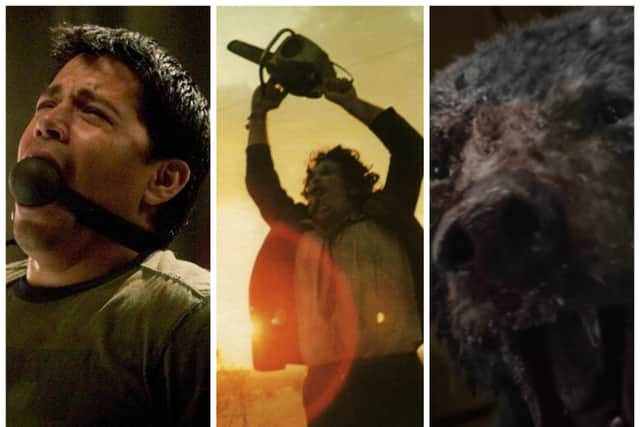

The Texas Chainsaw Massacre (1974)
A father of the genre, The Texas Chainsaw Massacre carried the dubious tagline ‘What happened is true. Now the motion picture that’s just as real.’ The horror film, generally considered to be one the scariest films of all time, follows five friends who travel to Texas to visit the grave of one of their grandfathers, but stumble upon a demented cannibalistic killer, Leatherface, armed with a chainsaw.
Advertisement
Hide AdAdvertisement
Hide AdDespite the film’s lofty claims, Texas Chainsaw is only loosely based on a true story - that of murdered and bodysnatcher Ed Gein who operated in Wisconsin, not Texas. Gein is known to have killed two women, and was suspected of seven more murders - but he killed his victims by shooting them with a rifle, not by dismembering them with a chainsaw.
There’s also no evidence that he was a cannibal, although he did rob graves and made mementos from the body parts that he dug up - unsurprisingly he was declared legally insane, he died at a mental hospital in 1984.
The Texas Chainsaw Massacre is available to watch now on Amazon Prime Video. A poorly received 2022 remake is available to watch on Netflix now.
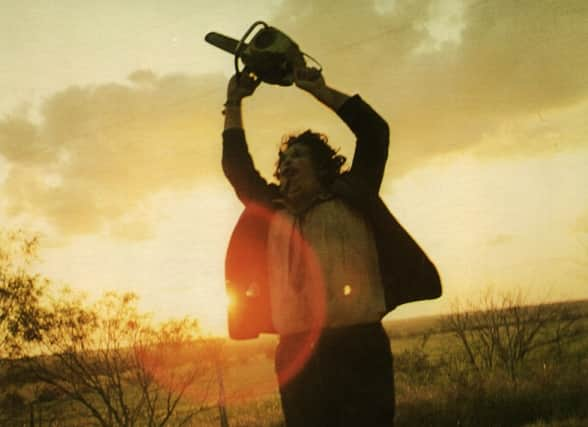

The Stanford Prison Experiment (2015)
Likely the most accurate film on this list, The Stanford Prison Experiment is more of a psychological thriller than a horror. The film follows the infamous experiment conducted in 1971 in which 22 college students were placed in a simulated prison environment, with some playing the role of prisoners, and the others playing guards.
Advertisement
Hide AdAdvertisement
Hide AdMany of the participants became engrossed in their role, with the guards exerting real power over their prisoner charges. Over the six day study, several participants were excused from the experiment as they suffered serious mental health episodes including depression, crying fits, and anxiety.
Since the study was conducted, Zimbardo has written “The Lucifer Effect,” a book in which he discusses the gradual changes experienced within the subjects and himself throughout the experiment. The research has been widely studied by psychology students and beyond, serving as a controversial but poignant example of the effect of a prison environment.
Speaking in The Stanford Daily, Philip Zimbardo, a professor involved in the experiment, said: “There are no scenes that were put in that didn’t happen in the real study. There were no scenes that had to be put in for the drama…. I’d say it’s roughly 90 percent accurate.” The Stanford Prison Experiment is available to rent on Prime Video, and YouTube for £2.49, and AppleTV for £3.49.
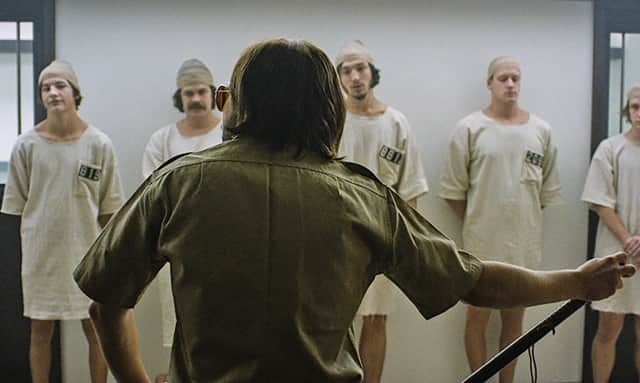

The Conjuring (2013)
The Conjuring is a supernatural horror film based on the disturbing true story of the Warrens. Ed Warren, a Second World War veteran studied the subject of demonology and believed that he could discover demons, whilst his wife Lorraine claimed to be a clairvoyant who could communicate with these dark spirits.
Advertisement
Hide AdAdvertisement
Hide AdThe pair set up their own paranormal investigation firm and were hired by the Perron family to investigate strange activity at their home. During one visit, Lorraine held a seance during which Carolyn Perron supposedly became possessed by a spirit who was haunting their home and began speaking in tongues.
The Conjuring was heavily marketed as being a true story when it was released, and was favourably received as a terrifying movie - though whether the evil spirit featured in the film really existed is another matter - the real-life Perrons and Warrens certainly believed it did.
The Conjuring, and the Conjuring 2, are available to stream on NOW, and you can rent them on AppleTV, the Sky Store, and YouTube for £3.49 each. The second sequel, The Devil Made Me Do It is available to watch on Prime Video.
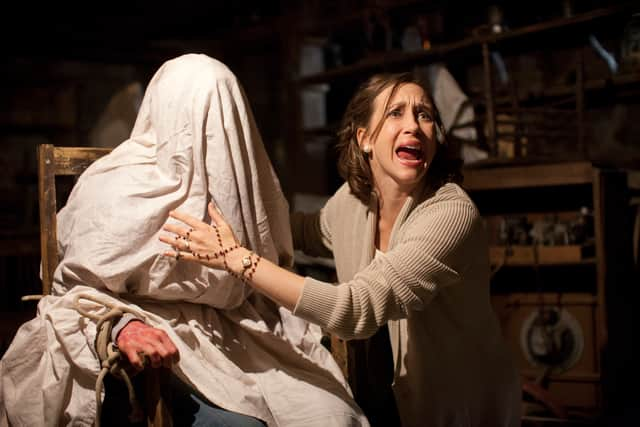

Wolf Creek (2005)
Grime Australian horror Wolf Creek follows three backpackers who are taken captive and hunted by a sadistic serial killer in the Australian outback. The incredibly violent film was depressingly inspired by true cases of backpackers who had been murdered in the outback.
Advertisement
Hide AdAdvertisement
Hide AdWriter and director Greg McLean was inspired by ‘Backpack Killer’ Ivan Milat who abducted and murdered at least seven people between 1989 and 1992, and Bradley Murdoch, who killed a backpacker in 2001.
The release of the film in Australia’s northern territory was delayed due to the trial of Murdoch, who was on trial for the murder of backpacker Peter Falconio at the time - Murdoch was found guilty and sentenced to life imprisonment.
Wolf Creek is available to rent on the Sky Store now for £3.49. A 2014 sequel is available to rent on Prime Video and YouTube for £2.49, and on AppleTV for £3.49. An anthology series based on the film is available to stream on All4 and Sky Go.
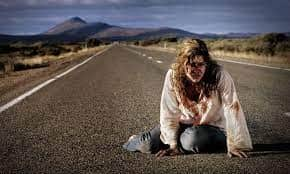

Hostel (2006)
Visceral gore-fest Hostel is certainly not for the faint hearted - the movie has a very simple premise; three students travelling through Europe are convinced by a strange man to visit a hostel in Slovakia where they are subjected to extreme torture for the entertainment of wealthy and pervted businessmen.
Advertisement
Hide AdAdvertisement
Hide AdThankfully, this is one ‘true story’ horror film that has almost no truth to it. Director Eli Roth said that his inspiration for the film came when he heard about an advertisement online where you could pay to go murder someone.
The idea was you paid $10,000 dollars, travelled to Thailand and were shown to a private hotel room containing a tragic victim, you were then handed a gun and told to shoot the victim in the head. This ad was also almost certainly not based on reality and was most likely an internet scam - but Roth’s Hostel movies are enough to put anyone off travelling alone.
Hostel is available to watch now on Prime Video - you can also rent it on AppleTV and the Sky Store. You can rent Part II on Prime Video and YouTube for £2.49 and on AppleTV for £3.49, Part III is on Netflix, or you can rent it on Prime Video and YouTube for £2.49 and on AppleTV for £3.49.
Comment Guidelines
National World encourages reader discussion on our stories. User feedback, insights and back-and-forth exchanges add a rich layer of context to reporting. Please review our Community Guidelines before commenting.
